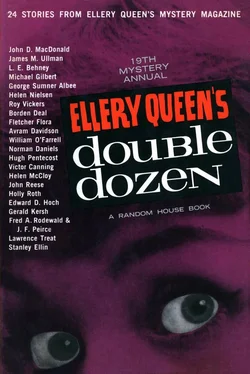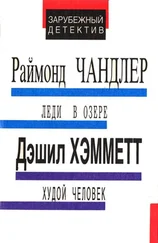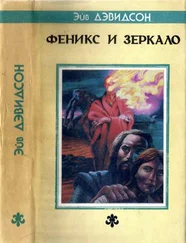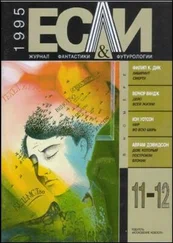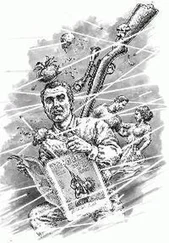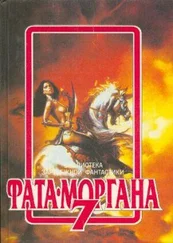“Yes,” said Noah, wondering if only Americano Ebreos came this way. “But you can put away the pictures. I don’t want any.”
“Maybe a guide book? The best. Or you want a guide? The ghetto, Isola Tiberina, Teatro Marcello? Anywhere you want to go, I can show you. Two thousand lire. Ask anybody. For two thousand lire nobody is a better guide than Carlo Piperno. That’s me.”
“Noah Freeman, that’s me. And the only place I want to go to is the rabbi’s. Can I find him in the synagogue?”
“No, but I will take you to his house. Afterwards we see the ghetto, Tiberina—”
The rabbi proved to be a man of good will, of understanding; but, he explained in precise English, perhaps he could afford to be objective about the case of Ezechiele Coen because he himself was not a Roman. He had come to this congregation from Milan, an outsider. Yet, even as an outsider he could appreciate the depth of his congregation’s hatred for their betrayer. A sad situation, but could they be blamed for that? Could it not be the sternest warning to all such betrayers if evil times ever came again?
“He’s been dead a long time,” said Noah.
“So are those whose lives he sold. Worse than that.” The rabbi gestured at the shuttered window beyond which lay the Tiber. “He sold the lives of friends who were not of our faith. Those who had lived in Trastevere across the river, working people, priests, who gave some of us hiding places when we needed them Did the daughter of Ezechiele Coen tell you how, when she was a child, they helped remove her from the city at night in a cart of wine barrels, risking their lives to do it? Does she think it is easy to forget how her father rewarded them for that?”
“But why her?” Noah protested. “Why should your congregation make her an outcast? She and her brother aren’t the guilty ones. Do you really believe that the sins of the fathers must be visited on the children?”
The rabbi shook his head. “There are sins, Signor Freeman, which make a horror that takes generations to wipe away. I welcome the girl and her brother to the synagogue, but I cannot wipe away the horror in the people they would meet there. If I wished to, I could not work such a miracle.
“Only a little while ago there was a great and flourishing congregation, here, signore, a congregation almost as ancient as Rome itself. Do you know what is left of it now? A handful. A handful who cannot forget The Jews of Rome do not forget easily. To this day they curse the name of Titus who destroyed the Temple in Jerusalem as they remember kindly the name of Julius Caesar who was their friend, and for whose body they mourned seven days in the Forum. And the day they forgive Titus will be the same day they forgive Ezechiele Coen and his children and their children to come. Do you know what I mean, Signor Freeman?”
“Yes,” said Noah. “I know what you mean.”
He went out into the bleak, cobblestoned street, oppressed by a sense of antiquity weighing him down, of two thousand years of unrelenting history heavy on his shoulders, and not even the racketing of motor traffic along the river embankment, the spectacle of the living present, could dispel it. Carlo Piperno, the post-card vender, was waiting there.
“You have seen the rabbi? Good. Now I show you Isola Tiberina.”
“Forget Isola Tiberina. There’s something else I want you to show me.”
“For two thousand lire, anything.”
“All right.” Noah extracted the banknotes from his wallet. “Does the name Ezechiele Coen mean anything to you?”
Carlo Piperno had the hard, capable look of a man impervious to surprise. Nevertheless, he was visibly surprised. Then he recovered himself. “That one? Mi dispiace, signore. Sorry, but he is dead, that one.” He pointed to the ground at his feet “You want him, you have to look there for him.”
“I don’t want him. I want someone who knew him well. Someone who can tell me what he did and what happened to him.”
“Everybody knows. I can tell you.”
“No, it must be someone who wasn’t a child when it happened. Capisce?”
“Capisco. But why?”
“If I answer that, it will cost you these two thousand lire. Shall I answer?”
“No, no.” Carlo reached out and dexterously took possession of the money. He shrugged. “But first the rabbi, now Ezechiele Coen who is in hell long ago. Well, I am a guide, no? So now I am your guide.”
He led the way through a labyrinth of narrow streets to an area not far from the synagogue, a paved area with the remains of a stone wall girdling it. Beyond the wall were tenements worn by time to the color of the clay that had gone into their brick. Yet their tenants seemed to have pride of possession. In almost every window were boxes of flowers and greenery. On steps and in stony courtyards, housewives with brushes and buckets scrubbed the stone and brick. In surrounding alleys were small stores, buzzing with activity.
With shock Noah suddenly realized that here was the ghetto, that he was standing before a vestige of the past which thus far in his life had been only an ugly word to him. It was the presence of the wall that provided the shock, he knew. It had no gate, there was no one to prevent you from departing through it, but if it were up to him he would have had it tom down on the spot.
A strange place, Rome. Wherever you turned were the reminders of the cruel past. Memorials to man, the persecuted. This wall, the catacombs, the churches built to martyrs, the Colosseum. There was no escaping their insistent presence.
Carlo’s destination turned out to be a butcher shop — the shop of Vito Levi, according to the sign over it. The butcher, a burly, gray-haired man, stood behind his chest-high marble counter hacking at a piece of meat, exchanging loud repartee with a shriveled old woman, a shawl over her head, a string bag in her hand, waiting for her order. While Carlo was addressing him he continued to chop away with the cleaver, then suddenly placed it on the counter, and came around to meet Noah in the street, wiping his hands on his apron as he came. The old woman followed, peering at Noah with beady-eyed interest, and in another minute others from the street were gathering around, getting the news from her. Ezechiele Coen may have been dead twenty years, Noah thought, but his name was still very much alive in these quarters.
He was not sorry that the matter was going to be discussed in public this way. As a young patrolman on the beat he had learned not to be too quick to break up a crowd around an accident or crime; there might be someone in the crowd who had something to say worth hearing. Now he gathered from the heat of discussion around him that everyone here had something to say about Ezechiele Coen.
With Carlo serving as interpreter, he put his questions first to Levi the butcher, and then to anyone else who volunteered information. Slowly, piece by piece, the picture of Ezechiele Coen and his crime took shape. It was Levi who supplied most of the information — the time, the place, the event.
The butcher had known Ezechiele Coen well. Like all others he had trusted him, because no man had a greater reputation for honesty than the doctor. He was a great doctor, a man of science; yet he was a man of God, too, devout, each morning binding on his phylacteries and saying his prayers, each sabbath attending the synagogue. Not that there was any gentleness in him. He was a proud man, an arrogant man, a man who would insult you to your face for the least offense. After all, it was one thing to be honest, but it was something else again to behave as if you were the only honest man in the world. The only one on earth who would never compromise with truth. That was Ezechiele Coen. You might trust him, but you could not like him. He was too good for that.
Читать дальше
